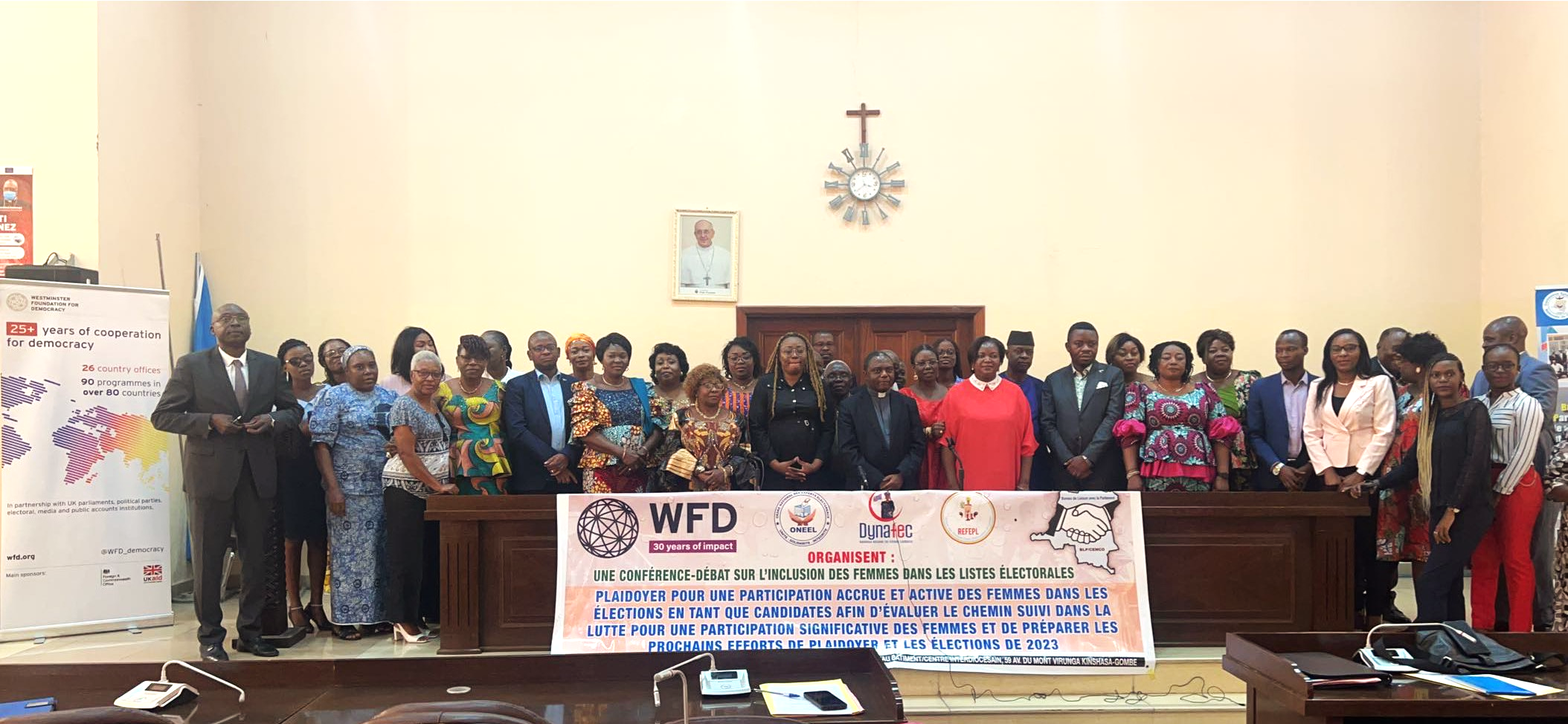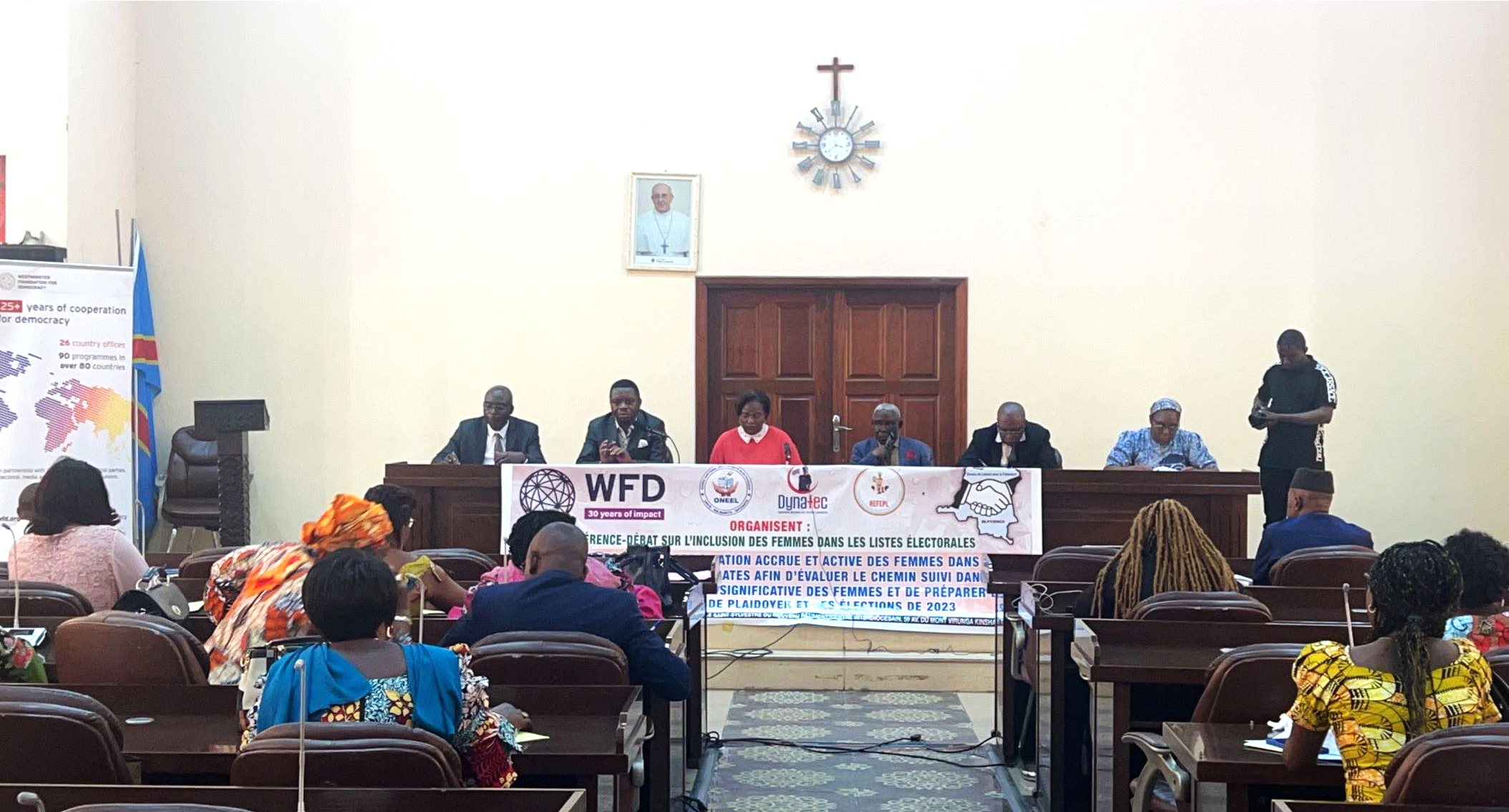Women’s equal representation and participation in politics and public life is essential in a democracy, with female political leadership resulting in better outcomes for women and girls, as well as for the whole of society. In the Democratic Republic of Congo (DRC), representation of women within politics remains low. This is despite a provision in the law of the country which stipulates, "Political parties shall take into account gender parity when drawing up electoral lists under the conditions laid down in the Electoral Law."
The low representation of women in political leadership is mostly due to poverty, institutional framework unfavourable to women, cultural constraints, and low level of education. Currently, women represent only 12.8% of leaders in the DRC National Assembly, 23.85% of the Senate, and 10% in Provincial Assemblies. With the next general elections in the DRC set for December 2023, WFD has been working with civil society organisations in the country to promote an increase in women’s political participation in leadership.
Recently, on 15th October 2022, WFD organised a discussion forum on the inclusion of women in electoral lists in the DRC. The forum – which was in form of a conference-debate: assessed the level of integration of gender parity in the electoral process by the electoral law; analysed related advocacy efforts; and, reflected on the opportunities and challenges available to women politicians in preparation for their participation in the next electoral cycle.
The stakeholders of the debate included WFD’s local partners the National Episcopal Conference of Congo through its Parliamentary Liaison Office (BLP/CENCO), the National Order of Electoral Experts (ONEEL), the Dynamics of Women Candidates (DYNAFEC) and the Network of Provincial and Local Elected Women (REFEPEL). Women parliamentarians and members of political parties also took part and engaged in the discussions.
Recommendations made during presentations and discussions by the participants of the forum include –
- Multiplying meetings (forums) on electoral strategies for the benefit of women.
- Organising radio and television programmes to raise awareness on women's candidacies.
- Reflecting on the mechanisms that can help overcome prejudices and sexist stereotypes.
- Raising awareness among the leaders of political parties on the voluntary quota.
- Supporting the empowerment of women and girls.
- Intensifying sensitisation of women and men at provincial and local levels for the appropriation of the innovations of the electoral law.
- Ensuring that competent women candidates' lists are aligned to avoid filling the lists only to avoid paying the deposit.
WFD has always promoted and ensured the inclusion of women in each of its projects in the DRC. Our commitment is to support our local partners in the implementation of these recommendations ahead of the 2023 elections.

French version of the conference-debate report
Rapport de la conference debat sur l'inclusion des femmes
